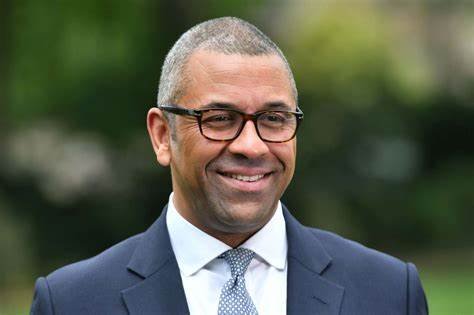By Juliet Jacob Ochenje
The United Kingdom (UK) Foreign Secretary, James Cleverly, has pledged the country’s support to Nigeria in making its agricultural sector more resilient to climate change.
He said this on Tuesday, while on his first visit to Nigeria, which is part of a four day, three country visit to Africa.
A press statement issued by the UK embassy added that the Foreign Secretary will visit a UN Humanitarian Air Service centre in Abuja to assess how over £38 million of UK funding has helped vulnerable communities in the North-East of Nigeria.
The Foreign Secretary, the statement added, is also scheduled to meet with President Bola Ahmed Tinubu and the National Security Advisor, Mallam Nuhu Ribadu, to discuss the UK-Nigeria partnership and key common priorities, including how to increase bilateral trade and investment, economic development, regional issues, and strengthened security cooperation.
“Two thirds of Nigeria’s population depend on agriculture for employment, this new funding will help boost the Nigerian agricultural sector’s productivity and resilience to the impacts of climate change, transforming Nigerian critical agriculture and food systems for the benefit of people, climate and nature,” the statement read.
It added: “Support will help to develop heat and flood tolerant crops and increase soil fertility, new support will help grow the UK’s economy by alleviating some of the agricultural trade barriers to UK imports.”
The foreign secretary was quoted as saying that his trip to Nigeria on a three-country visit to Africa where prioritising future-focused, mutually-beneficial partnerships.
“Nigeria has a booming population and the largest economy in Africa – there is huge potential for an even closer partnership between UK-and Nigerian businesses which will be of mutual benefit to both countries,”
“Together we are focusing on the future putting in place green, clean measures, both in agriculture and infrastructure development, to create climate-resilient solutions for the global challenges we all face today and will increasingly face in the years to come. ”
He also said, “Over four million people are facing food insecurity, and two million children under five are acutely malnourished in Borno, Adamawa and Yobe States. This funding is helping to protect people, build their resilience to the ongoing food shortage crisis, and prevent famine.”
“This in turn will help increase productivity, capacity and resilience among small-scale farmers and rural communities across Nigeria while reducing carbon emissions and protecting natural ecosystems.”



